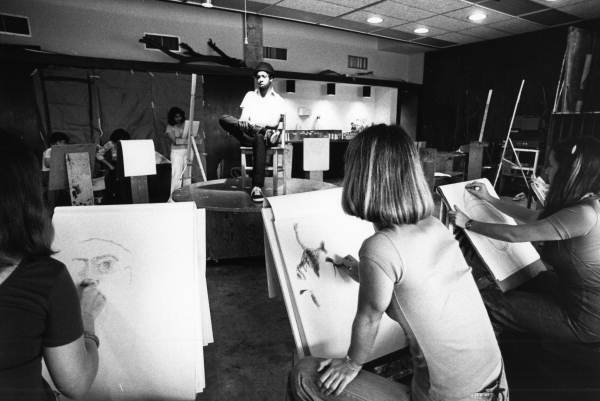The Employment Predicament
This one’s for the humanities majors out there.
By Kara Mercer, Northern Illinois University
Recently, there has been a heavy focus throughout grade school and higher education on Science, Technology, Engineering and Math (STEM).
STEM occupations will never go away, because you live in an advanced society reliant on technological advances, just as it depends on firefighters, doctors, lawyers, nurses, police officers and every other civil-service profession. With the advancement of science and the increasingly digitized world, some jobs become obsolete.
Customer-service employees are being replaced by automated systems and kiosks. While most students aren’t attending college to work in a customer-service job, there are still threats to less useful majors. Choosing a major can be overwhelming for college students, especially if they want a career in a seemingly vanishing field.
Northern Illinois University (NIU) is currently undergoing Program Prioritization, where the school is making financial decisions and assessing different majors. Many schools have taken steps to evaluate programs and certificates in order to reinvest in growing fields, as well as introduce new ones. While it’s smart for universities to update their offered classes, where does prioritizing leave undergraduates who want to pursue the dropped majors?
With schools prioritizing programs based on worth, it can be discouraging for students in the humanities or other less popular groups, even with an increasing number of articles pointing out the growing need for arts. It seems like schools are focusing more on STEM fields than on anthropology, English, philosophy and music, but there’s still hope.

No more saying, “I don’t know” when asked what you plan on doing with that major. Do the research on the field you want to enter. The job you want may have a different name than you’re expecting.
Some universities have webpages providing students with information on available jobs. I used to think the only thing I could do with a Bachelor’s in English was teach (no thanks), but after looking through the major’s page on NIU’s website, I learned that there is much more to being an English major than teaching or research. Just as being a doctor isn’t the only medical career, some jobs come with different and obscure names.
Some English-major positions have “communications” or “media” in the title. Few have heard of “media buyer” or “public relations specialists” in comparison to “doctor” or “engineer.” Philosophy majors can be “lobbyists” or “bioethicists.” Don’t shy away from obscure or odd jobs. Funeral homes need communicators, and STEM fields need photographers, animators and instruction writers. Some of the best work experience can derive from a strange place.
When searching for a potential job, put in the extra research and effort. It will pay off. Spin your major, and any class you have taken, when applying for jobs. While taking classes, you may wonder how an analysis of an old poem, a complicated group project or first-order logic problems in Tarski’s World can apply directly to a future career. There are countless ways to spin an outwardly useless class with no obvious relation to your future career prospects.
Through my English classes, I’ve learned research skills, critical thinking and argument development. My technical-writing class taught me how to write in a professional setting and how to write instructions for different processes. When a class starts, it may be unclear how it will help you in the long run, but there is always a way to spin the seemingly useless classes.
Combine your major with a minor to power-up your future career. Minors let students pursue other interests while making themselves more marketable. There are multitudes of major and minor pairings to set scholars up for success. Certificates can also help students in future careers. While not as intensive as majors or minors, certificates can add more skills to your résumé.
When I graduate, I will have a minor in Journalism and a certificate in Creative Writing; I learned more than just how to write, though. I worked with InDesign, Photoshop and graphic design websites, while also learning about photography and public relations. I was taught how to workshop others’ work and improve my own. When you seek out more than what your major offers, you become well-rounded, and more career opportunities appear.
Humanities majors can even minor in a STEM field. There is a group at NIU called “STEM Read” that promotes these fields to young people through children’s books, author visits and creative activities. The program combines the popularity of promoting STEM fields through the humanities.
Colleges provide access to resources that make students successful. Most majors have a director of student professional development, so students can receive help finding internships. Advisors can also guide students in their selected majors as well as help undergraduates with the job search and application process. College is the connection between education and starting a future.
The next time someone asks you what you can do with your major, load your arsenal with several job titles and ways you’d be a great fit for the position. If the job you wanted has disappeared, the key aspects of the job have not. Prove to family members or strangers that there is a need for you and your major.
The career you want may have combined with another occupation, or it may simply have a different name or description. You just have to keep your eyes open.

















